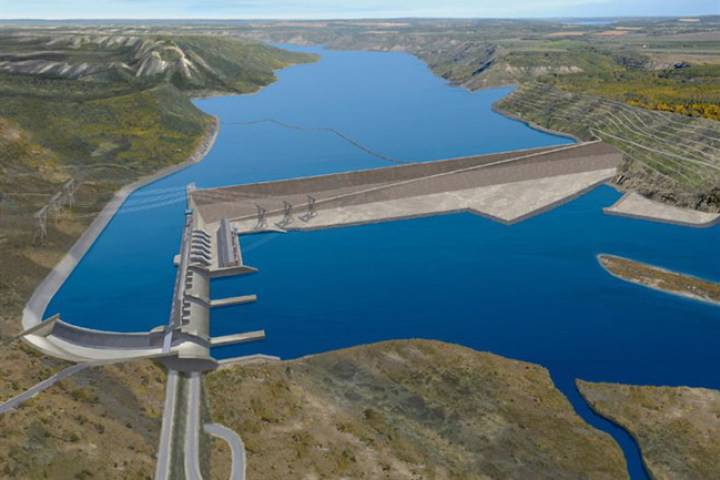VANCOUVER – A stop-work order for the Site C dam will cause “extreme prejudice” to BC Hydro at a cost of hundreds of millions of dollars and a one-year delay in the construction schedule, the utility’s lawyer says.

Mark Andrews told a B.C. Supreme Court judge that critical milestones will not be met if an injunction is granted to a pair of First Nations.
“This injunction is going to drive a truck into the schedule of the project at this stage in particular,” Andrews said Wednesday.
The West Moberly and Prophet River First Nations are challenging the nearly $9-billion project by arguing they were not properly consulted before permits were granted for Site C, the third dam on the Peace River.
The Treaty 8 Tribal Alliance members say they will suffer “irreparable harm” if BC Hydro is allowed to start clearing thousands of hectares of old-growth forest.
They’ve asked a judge to block work authorized by specific permits.

Get breaking National news
READ MORE: Crown didn’t consult on Site C permits, argues lawyer
The first of seven phases of construction is proceeding while the First Nations await decisions on two judicial reviews of environmental assessment certificates granted by the B.C. and federal governments.
Andrews told court some work began in late July and that a year’s delay would cost more than $300 million initially, plus another $200 million related to acquiring resources.
He said it would also push back site preparation critical for the primary building contract, worth about $1 billion and slated to be awarded in December.
“If the applicants were seeking to stop this project, they should have moved earlier,” Andrews said.
“The result of them not acting earlier is that prejudice — which I’ve characterized as extreme — is far worse.”
He also argued against the First Nations’ assertions about the extent of damage the first stage of construction could cause to their traditional lands.
Andrews said there’s no evidence it would result in “serious harm” to heritage sites, describing their contents as stones, flakes, chips and tools.
Established protocols for preserving artifacts could be used to adequately deal with those concerns, he said.
“The clearing and other work that will be done on the south bank will not by any reasonable or objective measure cause serious or irreparable harm to the exercise of the applicant’s treaty rights.”
The project is in the public interest because the dam’s power will flow to British Columbians, he said.
BC Hydro has said the dam is expected increase its energy supply by eight per cent, enough to generate electricity for about 450,000 homes annually.







Comments